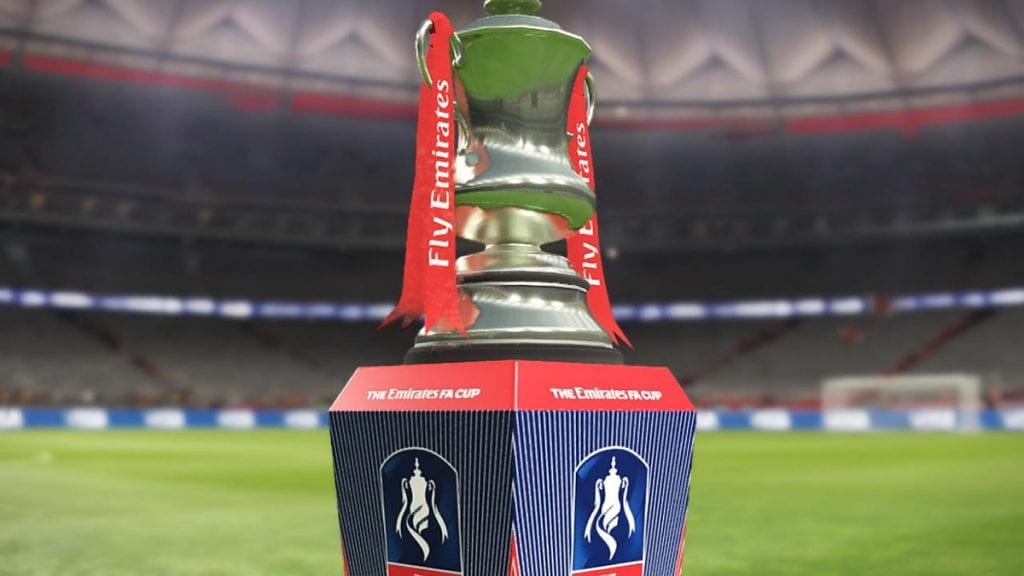Football is hugely popular in the UK and one of the countries favourite competitions is the FA Cup. It takes place each year and is staged over a number of months. It has produced countless memorable moments over the years and there are many iconic images which are conjured up by a mere mention of the competition.
It is usually won by a Premier League side however the competition is exceptionally important to teams in the lower echelons of the football pyramid and provides a terrific financial boost for those sides. Over 600 clubs feature in the competition although not all at the same time.
The preliminary rounds begin as early as mid-August with the competition concluding at Wembley Stadium at the end of May.
The first and second rounds of the competition will see a number of non-league sides compete against teams from the higher reaches and these games are often televised. If the unfancied side are victorious, it is often described as a ‘giant-killing’. The competition can also be a welcome distraction from poor league form for many sides.
If games are not decided within 90 minutes, replays will take place. This process has recently been scrapped from the fifth round onwards in order to avoid potential fixture congestion. The draw for the FA Cup will typically take place on a Monday evening and is usually televised on the BBC.
Where and When
The FA Cup begins as early as August although betting opportunities on the preliminary rounds are often prohibitive. Premier League teams enter the competition in January at the third round stage with these fixtures taking place on the first Saturday of the year.
All games are played at the ground of the team who are drawn out of the hat first. Replays are staged at the opponent’s stadium. Semi-Finals and Finals are held at the National Stadium.
Why is the FA Cup so Popular?
The FA Cup has been a mainstay of British football for many years and it has produced a number of memorable moments. These usually revolve around so-called ‘minnows’ unexpectedly beating top flight sides. It is also a chance for lower teams to test themselves against bigger teams and the prospect of the likes of Liverpool or Manchester United having to visit a non-league ground is hugely exciting for everyone involved.
From a betting perspective, it’s a great chance to profit from generous odds on unexpected outcomes in these games and this is something I enjoy exploring on a regular basis.
What Betting Opportunities are Available?
There are many opportunities available for bettors with the outright market always a decent place to start. This is simply predicting which team will lift the trophy at Wembley at the end of May. The competition is typically won by a Premier League side and it tends to be awarded to a top six team.
There are attractive prices available on this market with the majority of teams priced at 5/1 or bigger prior to the third round getting underway.
Big Bookmakers will also provide prices on each individual game throughout the tournament although very few online operators will have odds available on the preliminary stage.
Popular Betting Markets
Outright – As mentioned, the outright market is particularly popular and is usually dominated by the top six sides in the Premier League. Each-way betting is available although teams would need to make it all the way to the final in order to receive a pay-out.
Individual Match Markets – Each game is priced up throughout the tournament and the biggest bookmakers will provide markets on the Match Result (1X2), Under/Over Goals, First Goalscorer and Correct Score markets amongst many others. These will usually be weighted towards the higher-ranked side although the FA Cup does throw up many shocks each season.
Accumulators – Ahead of each round, many bettors like to put together accumulators for the FA Cup. These usually consist of sides who are expected to win their match against lower-ranked opposition. Every side would need to be victorious in order for punters to secure a pay-out
To Qualify – In addition to standard match odds, the FA Cup will also have a ‘To Qualify’ market which will offer a shorter price on each side to make it through to the next round of the competition. This could be achieved via either extra time or on penalties. This provides a safer option for bettors and allows the possibility of a draw after 90 minutes.
Bobby’s Big Betting Tips for the FA Cup
- Always Check Team News: Some managers will opt to make wholesale changes ahead of a cup tie. This is particularly common for sides who don’t require the financial windfall. A heavily-rotated side may lack fitness and may not be motivated for the tie. It could be worth backing against them.
- Manager Preference: Some managers have a lot of respect for the competition whilst others will always prioritise the league. It’s always worth checking a manager’s history in the FA Cup. How did they fare last season? Did they put together a good run at their previous club? Some head coaches just know to rally their troops and get them pumped up ahead of the match and these are always worth siding with.
- 3G Pitches: A relatively new addition is the 3G pitch which has become increasingly common amongst non-league clubs. It is forbidden by the EFL and some clubs from the higher tiers may struggle to adapt to these surfaces and it could be worth backing them to make a slow start or even slip-up.
- ‘Difficult Place to Go’: Many non-league and League Two clubs will be deemed a ‘difficult place to go’ by pundits and this is usually true in the FA Cup. Some grounds are pokey and noisy and intimidating and opposition clubs frequently struggle to pick up points. If Premier League clubs are travelling to face a lower-league outfit, they could be in for a difficult afternoon. Always search for sides who have a formidable home record in the lower echelons.
- Late Goals are Common: Lower ranked sides are always full of energy during the early stages of games but they can often be undone later in the match. Fitness levels are often inferior to Premier League and Championship sides and these can be key in the final ten minutes. If the unfancied outsiders are in the lead with ten minutes to go, they will sit deep and try and preserve their lead and this often results in a late equaliser. Look for back a goal after 80 mins.
Where can I watch the FA Cup in the UK?
The coverage of the FA Cup is shared between the BBC and BT Sport. Each broadcaster will show two or three matches per round and will also have highlights from competition throughout the season.
The BBC will also show a round-up and continuous updates from around-the-grounds on a Sunday afternoon.
















